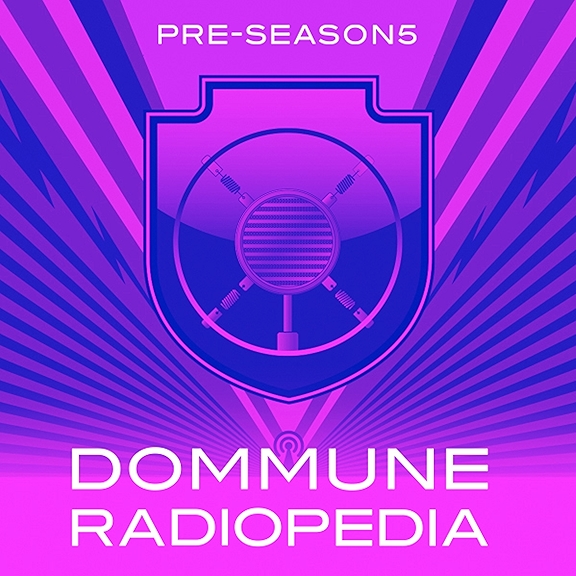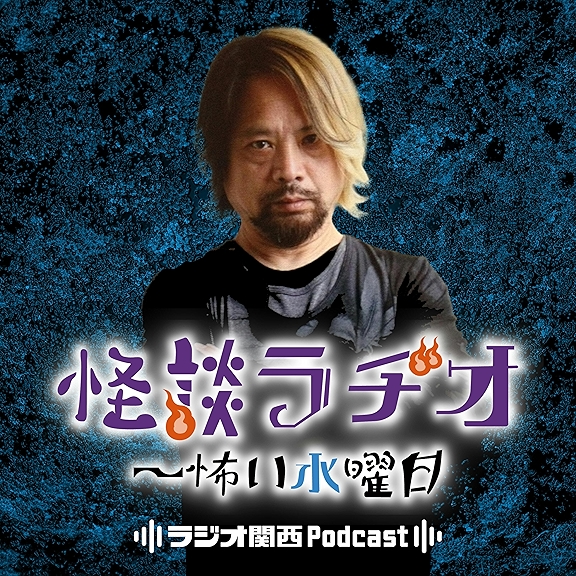
We Make Books is a podcast for writers and publishers, by writers and publishers and we want to hear from our listeners! Hit us up on our social media, linked below, and send us your questions, comments, and concerns for us to address in future episodes.
We hope you enjoy We Make Books!
Twitter: @WMBCast | @KindofKaelyn | @BittyBittyZap
Episode Transcript (by TK @_torkz)
[Upbeat Ukulele Intro Music] This is We Make Books, a podcast about writing publishing and everything in between. Rekka is a published Science Fiction and Fantasy author, and Kaelyn is a professional genre fiction editor. Together, they'll tackle the things you never knew you never knew about getting a book from concept to finished product, with explanations, examples, and a lot of laughter. Get your moleskin notebook ready. It's time for We Make Books.
Kaelyn: So it’s funny you picked this when I was still studying history, that was something we always had to consider. Is this group, is this person part of determining where they fit into historical context as determining do they have agency? Can they act on their own behalf? Structure is what keeps someone in place; agency is what allows them to act freely.
Rekka: Where would you put Odysseus, in this context?
K: I would make Odysseus a failed attempt at agency.
R: [laughing]
K: Well, maybe failed agency isn’t the right--because he is displaying agency. He’s trying to do something, and he’s having to frequently overcome obstacles. That said, those obstacles are things that keep happening to him, rather than him directly engaging.
R: Right.
K: So it’s a little bit of a, uh.
R: Weird example.
K: No it was a good one, I liked it.
R: No it’s a good example but it’s not a good role model for agency in your novels.
K: Odysseus isn’t a good role model for a lot of reasons.
R [laughing]: That’s just one of them.
K: [laughing]
R: Be the person who ties yourself to the mast, rather than give in to the sirens. Actually fuck it, give in to the sirens. It’s 2021, let’s just go for it.
K [laughing]: That’s a very bad--I feel like 2020 was the year to give into the sirens. [laughing]
R: Yeah, but what is 2021 but 2020 persevering?
K: No, we’re slowly defeating it. We’re claiming some agency for ourselves.
R: I am still in this room.
K: [laughing]
R: I have always been in this room. How are we defeating anything?
K: I think I was born in this room.
R: Kaelyn, have you and I met for smoked meats in a restaurant?
K: We haven’t.
R: Right. So, nothing has changed.
K: Yeah.
R: Have we hung out in a library with random strangers at the same table?
K: No. Some of whom are handwriting books.
R: Yeah, no. This is not happening. So today I called you here to talk about agency.
K: So in that scenario do I have agency? Because I made the decision to join you. But--
R: But--are you allowing this topic to happen? Or are you actively engaging in the expression of our ideas?
K: Oh both.
R: [laughing]
K: Definitely.
R: Once you get past some of the other, like, identify your theme, and helpful advice for writing like that--
K: Strengthen this character arc, you know, the really nice vague feedback.
R: The really helpful, helpful specific feedback. You might also end up hearing that your character needs more agency in a scene, or in the story overall. And as with the others, this can be really helpful advice. If you know what it means.
K: Yeah um, it I think falls into the category of frustratingly vague advice that is absolutely rooted in important context.
R: But it’s also really true.
K: Yes, yeah.
R: Which is just the worst part. There’s nothing worse than vague advice that is also correct.
K: It is vague advice, but I think when you’re dealing with things like ‘work on your character’s agency,’ ‘strengthen this arc,’ ‘identify the themes in your story,’ those are big picture things. So. Definition—as always love to start off with that—uh, agency in general, the definition is “an action or intervention, especially as to produce a particular event.” Acting, essentially. Taking action. Doing something. Trying to influence the outcome.
R: Not just action but pro-action.
K: Yes. For characters in books, agency is basically when a character can make choices and act on their own behalf.
R: What is it about agency that gets turned into a secret agency that acts against aliens, or whatever--I’m just playing around with etymology here--
K: [laughing]
R: But how’s that word get turned into that meaning?
K: The way I always took that was that an agency is meant to act on behalf of a group of people or towards a certain end. So, if we wanna take S.H.I.E.L.D. -
R: Okay.
K: So agents of S.H.I.E.L.D. Their job, their directive, is to protect Earth from large-scale global threats. Everything they do, every action they take, is to further that outcome. Real world example: the CIA, Counter-Intelligence Agency. They have a very specific job. It’s to try and out-maneuver, out-intelligence if you will, foreign and domestic hostile powers.
R: Okay so the word is not trans-mutated in any way, in the way that it’s applied to an organization. It still means taking proactive action toward a goal.
K: Yeah, so I did look up the definition of agency in that regard: “a business or organization established to provide a particular service, typically one that involves organizing transactions between two other parties.”
R: So like, a literary agent.
K: There you go. Here’s a good example, the Environmental Protection Agency.
R: Mhm.
K: Their directive, their job is to protect the environment. What do they do? They organize, they create scenarios, be they either laws or policies or transactions even, that further their goal of protecting the environment.
R: This is a group of people that are acting for one goal. In our writing, when we talk about agency, we’re generally referring to character agency. As in we have a main character, they are serving as our POV - point of view - and think of that term as the window through which you experience the story. Your viewpoint into this story and this world. So, everything that this character chooses to do is how you experience the story. So by acting on a desire, they create tension as to whether there will be an obstacle that they can overcome, whether they make a decision to do something that frightens them a lot, or whatever - you get to experience that tension. So if this character goes with the flow -
K: [laughing]
R: - how much tension do you get to experience?
K: Yeah so what this means when you get this feedback, ‘I need you to work on your character’s agency here,’ is that it means the character is being very passive. They’re being more reactive than proactive. Oh I’ve got a good example: Twilight.
R: Bella is a classic example and often referenced example of a character who doesn’t actually do much. And this is part of that Mary Sue criticism that gets used in the wrong places a lot, but in this case what we’re talking about is Bella is a bodysuit for you to crawl into, and see this world.
K: Well Bella is almost worse than that. In some cases Bella is an object. She is sort of a MacGuffin that furthers this story. Something I always like to trot out is, if this character weren’t here, would things go that differently?
R: [laughing]
K: Now, in Twilight yes they would. Because a lot of conflict, a lot of the story, whatever, does center around Bella, but it is more just the fact that she exists than anything else. If she were a particularly tasty cow that all of the vampires also wanted to eat, well - that’d be a different story too. [laughing]
R: Yeah, that’s a weird one.
K: No, but if she were something like a magic ring that lets the vampires turn back into humans or something, you could possibly just sub her in with a magic ring. And a lot of those story elements could still happen.
R: So is your character interchangeable with an inanimate object?
K [laughing]: My favorite one, ever, that I promise I’ll stop on this side note - Indiana Jones.
R: Mhm.
K: - is completely irrelevant to the first movie. If he weren’t there, everything would go exactly the same way. That said, Indiana Jones has agency.
R: He is trying.
K: He’s trying. He’s not doing the best job, but he’s trying. Um so, you can have a character that maybe if they weren’t there things would progress as normal. My whole point is Indiana Jones, regardless of whether or not he not only shows up, exists, the storyline with Marion and getting the Ark of the Covenant, we still end up with the Nazis opening the Ark of the Covenant on a remote island.
R: Just turns out it was a bad idea. [chuckles]
K [laughing]: Just turns out you shouldn’t go poking around in these things.
R: Yes. And that had more to do with Belloq being his agency to, as he put it, take whatever Indiana Jones had, and possess it himself.
K [overlapping]: Yes.
R: And then him not being able to resist looking in the Arc. Now, had the Arc made it to Hitler, would Hitler have known how to use it? I mean, he studied all this stuff. It’s very possible that he might’ve put it to more diabolical use, rather than just frying himself as Belloq did.
K [overlapping]: Yeah. Yes. Um, you know, in Twilight, the character that has agency there is not Bella, it’s Edward.
R [overlapping]: Mhm.
K: He’s the one who’s making all the decisions, he’s the one who’s making the choices. He chose to stay and pursue Bella. He chose to let her know that he was a vampire. He chose to eventually make her a vampire.
R: Mhm.
K: Bella is a thing that all of this is happening to.
R: The prize to be won.
K: Yeah. Bella’s a very passive character, and there’s points in the story where she does make decisions, but the choices then are even things that are forced upon her.
R: Here’s an example of not, apparently, including much agency in your character, and still having an incredibly successful book series.
K: And movies.
R: So as with all advice-
K [overlapping]: [laughing]
R: - feel free to break the rules and have a smashing success and good on you.
K: There is an exception to every rule to be sure. But, as you kinda said right at the get-go, one of the biggest criticisms of Bella is that she is an empty skin suit for the reader to crawl into and make themselves feel as though they are the star of the story. People who have agency don’t feel like that. It’s part of character development. If Bella were making a lot of choices and decisions and stuff, you’d have readers going “Well that’s not what I’d do, why would she do that, that’s so ridiculous.” And then you distance yourself from that character because you’re establishing them as a fully realized person.
R: Right.
K: Rather than the empty skin suit slash object.
R: Right. Now, Big Lebowski.
K [laughing]: Oh God, that’s a good one, okay! Um, God I haven’t watched that movie in forever, I love that movie.
R: So he starts out, he gets up, he goes to the grocery store, he gets the ingredients for his White Russian, he drinks half of it there, he goes home.
K: “Where is the money Lebowski?” [laughing]
R: This has happened to him so far. Somebody mistakes him because he shares a surname with a very rich person, and they walk into this very shabby home and somehow think that they’ve found the right place. Now he isn’t gonna do anything about it.
K: Yeah.
R: He goes on with his life. He just is kind of sad about it, but his friends convince him -
K [overlapping]: Yeah.
R: - that he needs to do something about it.
K: Except the guy pees on the carpet. And that carpet really tied the room together.
R: It really tied the room together! But he is not going to act until he’s convinced by his friends to act.
K: This is another thing with agency. It’s okay for characters to be sort of passive and have things happen to them. That’s what starts the story-
R [overlapping]: Mhm.
K: - going. You don’t, don’t get me wrong. There’s plenty of stories out there with someone going “I woke up this morning and decided to do this thing.”
R: Mhm.
K: Or they start out with a quest, or they come up with something on their own. [overlapping]
R [overlapping]: You’re in media res, so you’ve already gotten to the point where they want something.
K: Yeah. But typically even if we pick up within that point something had to happen to them a lot of times beforehand, for them to want to go get the magic ring that lets you turn back into a human.
R: Yeah and often you find that the character starts off trying to do a thing that isn’t the thing they decide they need to do in the end. I mean that’s kind of part of the whole character arc, is deciding what it is they really want. The Dude really wants a nice comfy life with his White Russians -
K: And his bathrobe. [laughing]
R: And the rug that ties the room together.
K: Yeah.
R: So it bothers him enough to complain about it, but not enough to act on it. Then he is cajoled into acting upon it. And he goes and finds himself embroiled in a large plot, where things kind of continue to happen to him.
K: With movies you can watch a series of strange events unfold, because there’s the visual component that - often these are comedies. It’s almost slapstick. We’re just watching this person who all he wants is to go bowling with his buddies, sit in his bathrobe, and drink White Russians. And he ends up getting pulled into this bizarre situation.
R: Being sent to have a physical ‘cause turns out he’s gonna father a child, and also toes get cut off -
K: You want a toe? I’ll get you a toe next week. [laughing] Lebowski is a rather passive character. He doesn’t have a ton of agency. That said, once he gets involved in this he does make decisions even if they’re just ‘I want to get out of this alive.’
R: Yes. And he observes clues and he starts to put things together that probably they expected him not to do. They really thought that he would just kinda take the fall for things, or just go along, get paid, go home, and return to his life.
K: Yeah. By the time he gets to the end of the story, his motivation is something between ‘I need to figure this out’ and ‘I’m not letting this random guy who got me tied into all of this get away with it.’ Does the Dude have agency? Sometimes, a little bit, if he can get the energy and motivation together to feel like it, which is by the way very in line with his character.
R: Yeah.
K: It is very typical with books to start out with characters just living their life. People by nature are passive. But you ever notice that when someone says “I’ve decided to do this thing,” it’s usually an announcement. It’s usually like “I’ve decided to change jobs.” “I’ve decided to buy a house.” “I’ve decided to ask this person to marry me.” It’s a decision you make to take action. Whereas most of our lives are just kind of us living our life, yeah after I’m done here I’m gonna have some soup I made, I’m very excited about that. I’m deciding to have soup. Is that agency? I don’t think so. You know in your day-to-day lives, agency are things that you’re trying to act for your benefit. I’ve decided to buy this house, because I worked very hard and I think this is a good investment and I think I’ll be happy and comfortable here, and this will improve my life a measurable amount that I want it to.
R: Mhm.
K: When characters act with agency, you know a lot of times they’re in situations that are not normal day-to-day things. There aren’t a lot of books out there about someone’s decision to work really hard, save money, and buy a house.
R: Well that’s the first 25% of a book, that 25%, that storyline is gonna go away, or be severely altered.
K: That house is haunted as hell. [laughing]
R [overlapping]: Mhm.
K: For a character to have agency, they have to do three things. They have to be able to act in their environment, which means that if you said a character, let’s say a human being, and you put them on an alien planet where literally everything is made of gas, that character’s not gonna have any agency because they can’t do anything.
R: Right.
K: But not only is everything made of gas, but the lifeforms that live there physically cannot communicate with the human, or have no interest in doing so.
R: Right.
K: So that person can’t interact with their environment; they’re not gonna have any agency, they have to just sit there and wait for something to happen.
R: Unless the plot of that story is ‘how do I get to the point where I can talk to these aliens?’ There have been many Star Trek episodes like this, where you can’t communicate with the other aliens and the plot is ‘how do we find common ground?’ So, the decision to do so is agency, but the human who says “Well, all these molecules are just too far apart, I guess I’ll just sit here.”
K: [laughing]
R: That character has no agency.
K: So the second thing is a character has to be able to make meaningful decisions. So, in the case of our character sitting on the gas planet, they’ve gotta make the decision of ‘I’m gonna find a way to gather all of this gas and condense it into something solid that I can use to my benefit.’
R: Right.
K: They have to have a way to work towards their own benefit. Even if it’s not working towards their own benefit they have to be presented with situations in which they can make a decision. Even if it’s ‘the army’s invading, there’s two sides of this city, we’re only gonna be able to fend them off from one, we have to evacuate the other.’ The character making the decision of ‘okay, we’re gonna evacuate the east end, move everybody into the west end, and here are the reasons that we’re doing this and that’s why it’ll give us a better advantage.’ That’s displaying agency. The third thing is the character’s ability to affect the story. And this is different from making decisions. This is where Indiana Jones fails.
R: Right, right.
K: Because he doesn’t actually affect the story really. Sure, he’s got some wacky hijinks, he shoots a guy who just wanted to have a nice sword fight -
R: Cracks a whip.
K: Cracks a whip, somehow hitches a ride on a submarine, you know, things happen.
R: If it wasn’t for Sallah he wouldn’t have even made it halfway through the movie.
K: Exactly. Is he entertaining? Absolutely. It’s a delight. But he doesn’t do anything that changes the outcome of what’s happening. So, this is different than making a decision. Because a character needs to have an impact on the story. If you erase them from the story and nothing changes, that’s not a good character.
R: You have some characters who maybe aren’t the decision makers, but if they’re the person with the special skill, or you know they’re the person with the strength or the fortitude to go ahead with the story that the other character doesn’t have, and you end up with a nice balanced team-up of brains and brawn. Obviously if you take the brawn out of that story, it is going to affect the story. Now, take Indiana Jones out, and you definitely have a very different movie.
K: Absolutely, yes.
R: Sometimes the character is required for the tone.
K: Like a swashbuckling adventurer.
R: Think of Jack Burton in Big Trouble in Little China.
K: Okay.
R: He’s not actually the hero of the movie. At one point a big fight scene starts, and he shoots his gun in the air and ends up knocking himself out when the ceiling falls on him. And for the greater portion of this fight scene he is prone on the ground. He’s almost like the story’s style, but he’s not the story’s main active character.
K: Yeah.
R: You know there’s parts where yes, they need him because he’s tough and he can fight, but so can the other characters. There’s a lot of characters doing a lot of stuff in that movie, and Jack Burton - you would notice, if you saw it and they removed him and then you watched it again, you would definitely notice his absence. But does his absence change the story? Would his friend have not gone to rescue his girlfriend? He definitely would have. And he definitely would’ve done it without Jack, but he talked Jack into helping. It’s interesting how many stories we enjoy end up with characters who draw a lot of attention to themselves, like Indiana Jones, like Jack Burton, without actually making a huge difference in the plot of the film. Or, I’m saying film ‘cause we like to use movies as shortcuts. But um -
K: [laughing]
R: How does this work in a book? Let’s go back to our favorite, Gideon the Ninth. Gideon kinda doesn’t have a clue what’s going on!
K: Gideon is a little bit of a passive character.
R: Yeah! But it’s delightful [laughing], just like Indiana Jones and Jack Burton.
K: She gets dragged along on this adventure, which we find out is basically one giant series of death traps. She doesn’t know why she’s there. She’s there to serve as a lens of the story for the reader, because the other main character that we’re introduced to here is of course Harrowhark.
R: Harrowhark has a lot of agency, and it’s all off the page.
K: Because Harrowhark can’t be bothered to tell anybody about it. And, if she did, if she was the point-of-view character in that first book, we would have no idea what was happening. We need all of this to be told to us through the lens of Gideon, who is more like us than, like, Harrowhark.
R: Yeah. Right.
K: Of course by the end of the book you know this changes; we’ve learned some things, we’ve solved some mysteries. But Gideon is sort of a passive observer. Yes, she’s poking around, she’s talking to people, she’s gathering information, but really she can’t do anything with it until Harrow tells her what’s going on.
R: And she’s only there because Harrow has made her promise to go along on this venture and then she’ll get the thing she wanted in the beginning, which she was pretty close to succeeding except Harrow was the obstacle. So Harrow said, “Do this thing with me, and then I’ll give you what you want.” And so Gideon goes along specifically for that purpose, and how much more passive can you be than just being like ‘if I just tap my foot throughout this book, I’ll get to the thing I want.’
K: Yeah. She literally just wants me to sit in a room and do nothing.
R: Harrowhark has even said “do not speak to anyone.”
K: Yeah. Don’t talk to anyone, don’t do anything, stay in this room, be here when I get back.
R: So of course, the plot happens because Gideon’s like uhh you don’t tell me what to do.
K [laughing]: Yeah it’s not agency so much as annoyance.
R: Two people who can’t stand each other so why would one do what the other one wants.
K: Yeah. Exactly.
R: That is kind of the plot of Gideon the Ninth, but in the most delightful way that I just made sound as flat as possible.
K: You’re right, because Gideon serves the purpose of one: as I said providing the reader with context and perspective, but two: also, she’s awesome!
R: Yeah.
K: And we like watching her swing this giant sword around, and be muscle-y -
R [overlapping]: Yeah, flex for the other people in the book.
K [overlapping]: Yeah.
R: And also like look at people and go “There’s something wrong with you” [laughing], you know?
K: Yes. Yes. Um, be the perspective of ‘This is all really weird, how am I the only person who sees that this is all really weird?’
R: Mhm.
K: So. Um, yeah, so that’s a good example of characters who are passive but are compelling. So if you’re thinking to yourself ‘well, if that’s a thing that’s allowed, why do I need to strengthen my character’s agency?’ Because it depends on the story you’re telling. And it depends on what you’re trying to do here. If you have a character who is supposed to be your main character, your protagonist, they’re supposed to be leading the charge, and what they’re doing is they’re tripping from event to happening back to other event, just sort of letting stuff happen to them rather than doing things themselves, that can get really boring to read.
K: The second and third book in the Ember in the Ashes series, there’s a character in there named Helene. And - I won’t ruin too much for anybody who hasn’t read these, and full disclosure I’m still finishing the fourth one - in the second and third books especially, Helene is running around putting out fires. She is desperately trying to manage an unmanageable situation. At the same time though, she’s trying to figure out ‘how do I solve this bigger problem that I’m trying to face? How do I mitigate these circumstances?’ I was so excited whenever it was one of her chapters, because that was the thing that I thought was most interesting, was watching her just get things heaped on her. Every time she turns around something else bad is happening, that is just one more thing she’s gotta deal with. So was she displaying agency? In the second book I would say not as much, by the third book we’re certainly getting there. But, it’s still compelling because the way she is acting on her own behalf is not necessarily for herself maybe, but for other people.
R: Okay.
K: Watching someone deal with and try to mitigate overwhelming circumstances, I would say, is a form of agency. Even if they are just running around putting out fires.
R: Trying to survive -
K [overlapping]: Yes.
R: - this moment, as opposed to having a plan for the next two weeks to six months -
K [overlapping]: Yeah.
R: - toppling the empire, etc. It’s okay if they’re just trying to get back to normal.
K: Yes. Or, just trying in the case of Helene, just trying to make sure her family’s safe. Let’s start there. That’s small step number one, I’ve gotta work on that. Okay small step number two, now I’ve got a deal with the residents of this city. Now I’ve gotta figure out how I’m gonna deal with this other maniac, and there’s all of these forces and factors that she can’t really do much about. But she can make decisions.
R: Right, so in an earthquake, a character obviously isn’t going to defeat the earthquake.
K: I defeated an earthquake last week, Rekka, I don’t know what you’re talking about. [laughing]
R: Okay. In a typhoon, Kaelyn’s not gonna go punch a typhoon.
K: No no, earthquakes are far more punchable than typhoons.
R: Right. So you can trust that Kaelyn’s gonna go check on friends and family, uh, Kaelyn’s going to act in ways that clearly are important and have great meaning to her personally, even if they’re not going to fix the fact that there’s a typhoon, or the fact that you know FEMA’s gonna have to come in and that sort of thing. So what about characters with examples of great agency? Like the Quest plot. Is that agency or is that ‘this wizard told me I need to go do this thing’?
K: Well okay so I will, we can talk about the Quest plot and then I’ll give you what I think is a good example of someone who has agency and, I’m going to put them into the same story, which I know we’ve been talking about this series a lot, Shadow and Bone and the Six of Crows. For those who haven’t read or watched it, hopefully you know that one is a trilogy, the other is a duology, they’re separate storylines but the Netflix series collapsed them both into one.
R: So go read the books anyway, because Netflix made some choices.
K: So the first trilogy Shadow and Bone, Alina Starkov is a very, a little bit of, especially for the first book, a passive character. You know she discovers she has this power, and she is tasked with solving this big problem because she has this power. She does start to display agency in the story but if things had just progressed along that sort of Quest storyline - you could argue that it even does a little bit because ultimately there is a problem that she is the only one that can solve.
R: Mhm.
K: So, is that agency? Well, the way she goes about handling it in the story, breaking away from the wizard character and trying to decide to do this her own way is certainly displaying agency.
R: Right.
K: Conversely, in the Six of Crows, we have the character Kaz, who is sort of your underworld rogue-type but not in a charming way. I would actually say he’s quite the opposite of charming. He’s very stoic, very serious, very no-nonsense. But Kaz makes a lot of decisions to try to accomplish goals and to better the lives of him and his friends. There’s some revenge scenarios here, but in the revenge scenarios it’s reclaiming things that were taken from him.
R: Right.
K: There’s friends to liberate, there’s people to try to help and better their lives, there’s people they encounter along the way that get into bad situations. He is a character with a lot of strong agency. Even before we meet him, we can see everything he’s done, everything he’s worked towards to build himself up to a point where one day he can maybe do this one thing he’s trying to get to. I would say he’s a great example of somebody with a lot of agency.
R: Right from the start.
K: Yeah.
R: So he’s got a plan, and this plan is the focus of the story.
K: Yes. Of course, wrenches get thrown into it, because -
R: Just in terms of Luke Skywalker just wants to escape the farm life, that’s his desire at the start. But what he ends -- I mean he does get that, but it turns into a much bigger story.
K: Katniss Everdeen from Hunger Games. Does she have agency? She is mostly reactive. She only volunteers because her sister got picked as tribute.
R: But she’s volunteering to protect her family, which you might say is proactive decision.
K: At the same time though, if Katniss had not volunteered, would any of the subsequent events in the story have happened? No. Her decisions are impacting the story. That said, she is very manipulated a lot through this entire story.
R [overlapping]: Oh yeah. And I think that’s just the way that as a character, we express that just ‘cause you’re a hero doesn’t mean you can’t be fooled, you can’t be misguided, you can’t be manipulated as you said. I thought that was incredibly different from anything I’d read of an adventurer-hero story, because you realize a hero doesn’t always make the right decisions.
K: Yeah. I have a lot of mixed feelings about that book series as we’ve discussed in this -
R: I’m not saying I’m happy with the way it ended, but that definitely opened my eyes, and I think influenced me. As a result, my characters definitely made decisions that they thought were sound, or they thought were motivated correctly, or were the right thing to do or whatever, that end up making more of a mess.
K: Yeah. Now that said, with Katniss one of the things I will say bothered me a lot in this, and this is I think a product of trying to shoehorn motivations into areas where it doesn’t already exist, Katniss is -- there’s a scene, it’s much more pronounced in the movie but it is in the book -- where they’re at District 13. And they’re all sitting in this bunker and it’s ‘let’s talk about a time Katniss has inspired you, she’s this symbol. She is the Mockingjay.’ I don’t know if this was on purpose, I don’t know if this was the intent, but I couldn’t come up with a better way to just be like this character is almost inconsequential to what they’re doing. They just need her to stand heroically in front of people. I really think that a 16-17 year old girl was probably not the sole motivation for overthrowing an entire super-oppressive government, but. [laughing]
R: Again, I am not going to jump in front of a train for this book series -
K [overlapping]: [laughing]
R: But I could see the development of a character who stands up to the government on TV that the government requires everybody to watch.
K: Yes.
R: Like this is a program that the government is putting in front of people’s faces because they want people to know that people will pay for their past transgressions, until they deem that they’re done. And Katniss says, “No. It’s not gonna be one survivor, I’m not going to kill the person that I grew up with because I need to survive; we’re both going to survive” and that turns into a big moment-
K [overlapping]: Yes, it did.
R: Also she honors the person from the other district with whom she’s supposed to be competing, but they all see her treat Rue like a human being, which is not something that you get from this government.
K: There’s these tiny acts of rebellion. But I would say that it’s all undone by the fact that she doesn’t actually want any part of this. She wants to go back to her life and be done. Now that’s, I would argue, not agency, because what she’s having to deal with is the fallout of decisions that she made for survival, rather than because she wanted to make a statement.
R: No I understand that, but I’m saying again with the hero doesn’t always make the right decisions, also, person who makes a couple decisions where other people can see them suddenly find themself turned into this bigger than life character -
K [overlapping]: Yup.
R: I felt like that was part of the character arc, coming to terms with being this person everybody now expected her to be, and sometimes needed her to be, in order for them to go on.
K: I found book Katniss a very grating character, I didn’t -
R: You are not the only one, I have heard this plenty of times.
K: I didn’t like her much but one thing I appreciated about her was how much she just wanted to be left alone. [laughing]
R: Yeah! I mean, we can all relate to that.
K [laughing]: We can all relate to that. It’s just like, I get it. I don’t really like you that much but I totally get it. She’s capable, as you said, she’s a fast thinker, but she’s not a leader. In fact in the second book they have a whole plot going on behind the scenes that she doesn’t know about until the very end, because everybody looked at her and went ‘I don’t think she’s gonna be helpful here.’ [laughing]
R: Yeah.
K: We would be better off just doing this on our own.
R: Yeah.
K: And I really appreciate the writer’s acknowledgment of that. [laughing] But again, in the second book she is reverted back to a very passive role, this stuff is just happening to her. Even more so than in the first one.
R: And then it continues in the third book, where they take her on this SWAT team adventure, and she’s just like ‘what the fuck’s going on?’
K: Yeah ‘cause they’re gonna go shoot all of this war footage of her. But then, she does make the decision ‘I’m going with this because I wanna get us into the Capitol, so that I can go kill the president.’
R: Right, right.
K: So there we do have Katniss with agency, with a plan.
R: Mhm.
K: How important do you think plans are to characters having agency?
R: This is a really good question. We’ve just described a lot of main characters who don’t really have a plan.
K: No, no.
R: And who are all highly successful IPs. Sometimes I think figuring out the plan can be the character’s arc. They know they want something. They try and fail and try and fail, and it’s because they don’t know how to go about it, or there’s something that they need to let go of or gain in order to figure out the best way. You know like a heist movie.
K: I swear I was just thinking of a heist movie. [laughing]
R: The plan is happening all along.
K: Yeah.
R: And it’s the reader watching it, and being misled about things going wrong that it turns out were part of the plan anyway because there’s always that aspect of the heist that you don’t hear about ‘til the end, and you get to watch it again and go ‘Oh now I see!’
K: ‘Yeah that guy was in the background the whole time.’
R: Yeah so obviously in that case the plan is not the plot. The reveal is the plot. The red herrings are the adventure, I don’t know. Sometimes a character figuring out what they want is the plot.
K: Mhm.
R: The idea I think is that the character starts with a sense of the way things are right now are not good.
K: I think there’s a lot of this in anime. I’m thinking of Inuyasha right now, did you watch that?
R: No. You’re gonna have to talk Sailor Moon if you’re gonna keep me on your level.
K: Okay, let’s talk Sailor Moon. Let’s talk the original anime run, where they really fleshed out a lot of the episodes, and remember at one point they’re trying to track down the seven rainbow crystals. You know Sailor Moon becomes Sailor Moon not by choice, she just is.
R [overlapping]: Yup.
K: And she’s got a talking cat that tells her to fight demons.
R: And yells at her for not doing her homework.
K: And at the same time, she’s not only gotta find these other sailor scouts, and identify them and get them to accept their fates and roles but because this is anime everyone’s like ‘Ah yes! This is what I was meant for the whole time!’ In the first season of the anime they’re tracking down these seven rainbow crystals. So they don’t necessarily know why they’re tracking them, and at one point Tuxedo Mask has one and they’re like that’s fine, he can just hang on to it.
R: [laughing]
K: They’re just like well we don’t want the bad guys to get these. We don’t know why. But then we find out, oh no wait, it turns out we actually need all of them.
R [overlapping]: Yeah.
K: Why? Well




















